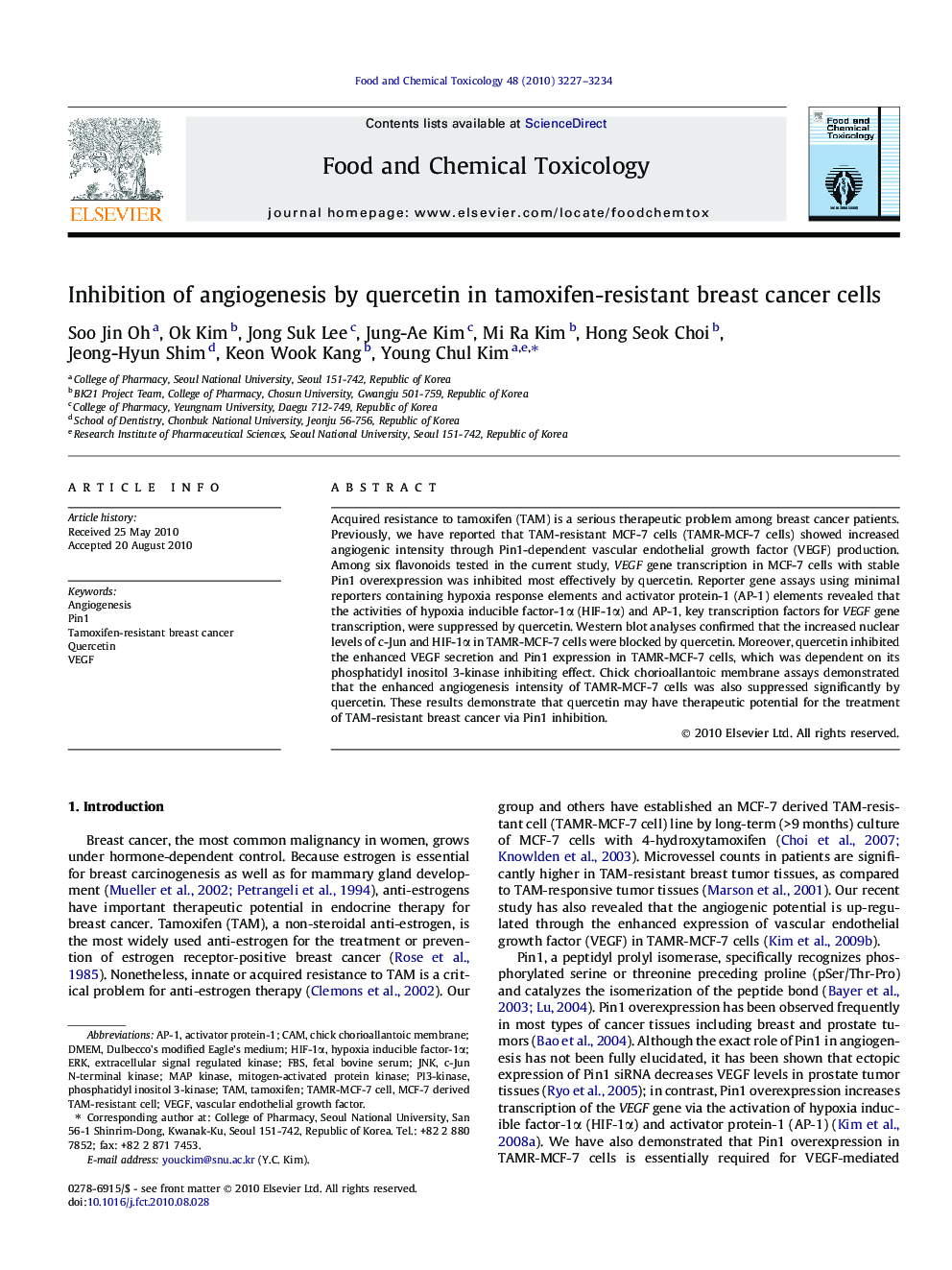| Article ID | Journal | Published Year | Pages | File Type |
|---|---|---|---|---|
| 2585793 | Food and Chemical Toxicology | 2010 | 8 Pages |
Acquired resistance to tamoxifen (TAM) is a serious therapeutic problem among breast cancer patients. Previously, we have reported that TAM-resistant MCF-7 cells (TAMR-MCF-7 cells) showed increased angiogenic intensity through Pin1-dependent vascular endothelial growth factor (VEGF) production. Among six flavonoids tested in the current study, VEGF gene transcription in MCF-7 cells with stable Pin1 overexpression was inhibited most effectively by quercetin. Reporter gene assays using minimal reporters containing hypoxia response elements and activator protein-1 (AP-1) elements revealed that the activities of hypoxia inducible factor-1α (HIF-1α) and AP-1, key transcription factors for VEGF gene transcription, were suppressed by quercetin. Western blot analyses confirmed that the increased nuclear levels of c-Jun and HIF-1α in TAMR-MCF-7 cells were blocked by quercetin. Moreover, quercetin inhibited the enhanced VEGF secretion and Pin1 expression in TAMR-MCF-7 cells, which was dependent on its phosphatidyl inositol 3-kinase inhibiting effect. Chick chorioallantoic membrane assays demonstrated that the enhanced angiogenesis intensity of TAMR-MCF-7 cells was also suppressed significantly by quercetin. These results demonstrate that quercetin may have therapeutic potential for the treatment of TAM-resistant breast cancer via Pin1 inhibition.
